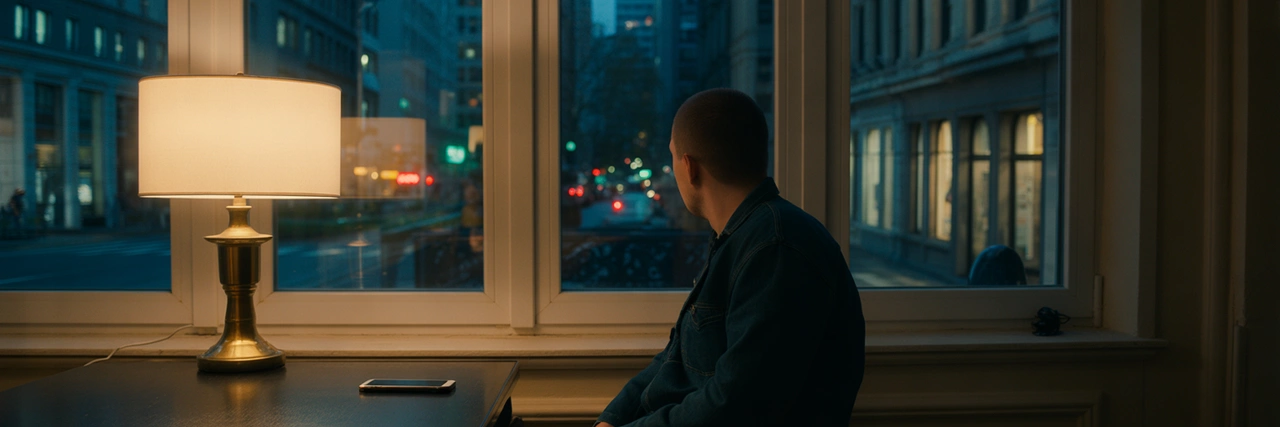Psychological Research Posts on Crowch
October is a month when millions of people unite to say: domestic violence cannot remain in silence. It destroys families, breaks lives, and leaves deep emotional and physical scars. But through awareness and support, we can break this cycle.
Domestic violence takes many forms. It can be physical harm and threats, but also shouting, humiliation, financial control, or isolating someone from friends and family. All of these are forms of abuse that leave scars not only on the body but also on the soul. And often the most frightening part is the silence around it. Survivors are afraid to speak, and those nearby sometimes choose to look away.
Why do we need this month?
- To speak out. Silence only makes the problem stronger. When we name things for what they are, we open the door to change.
- To help survivors. Hotlines, shelters, and crisis centers are real lifelines for those trying to start over.
- To educate the next generation. Young people must learn that healthy relationships are built on respect, not fear and control.
- To stand together. The purple ribbon is a sign of solidarity, a reminder that together we are stronger than violence.

Domestic Violence Awareness Month is not only about pain, but also about hope. It is about the stories of those who found the courage to leave, to rebuild, and to prove that life without fear is possible. It is about doctors, counselors, lawyers, and volunteers who dedicate themselves to helping survivors. It is about friends and families who refuse to turn away.
We can all be part of the solution. Share information, support a charity, listen to someone who is reaching out. Even a single kind word can be the first step toward freedom.
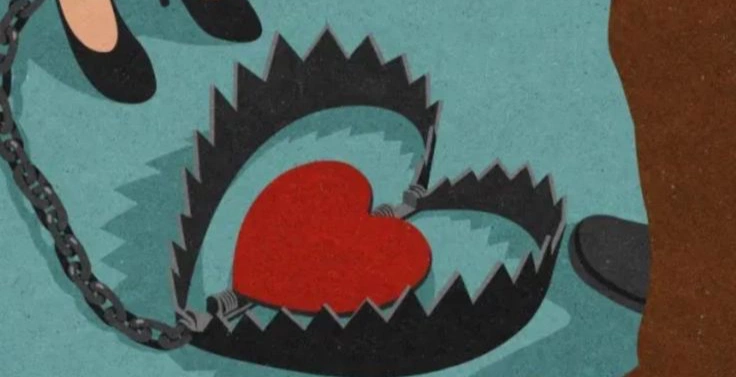
October in purple is a symbol of struggle and hope. It is our collective voice against violence. A voice that must be loud enough for survivors to hear, and for those who can help to take action.
Every October, millions of people around the world come together to raise awareness about one of society’s most painful issues — domestic violence. This month is not only about statistics and facts, but also about the stories of people who found the strength to fight back, the support of those who stood beside them, and the hope for a future without fear.
Domestic violence takes many forms: physical, psychological, economic, and emotional. It can happen in any family and affects people of all ages, cultures, and social backgrounds. Too often, survivors remain silent — because of fear, shame, or lack of support. That is why this month is so important: to give a voice to those who have been silent for too long.
Why is Domestic Violence Awareness Month important?
- Awareness. The more we talk about this problem, the greater the chance of preventing it. Society must recognize that violence is not a “private family matter,” but a violation of human rights.
- Support. Survivors need to know that help is available. Hotlines, crisis centers, psychological counseling, and legal assistance can be the first step toward a new life.
- Education. Young people should learn to build healthy relationships based on respect, not control or fear.
- Solidarity. Wearing a purple ribbon, joining awareness campaigns, or participating in events shows that we stand together against violence.
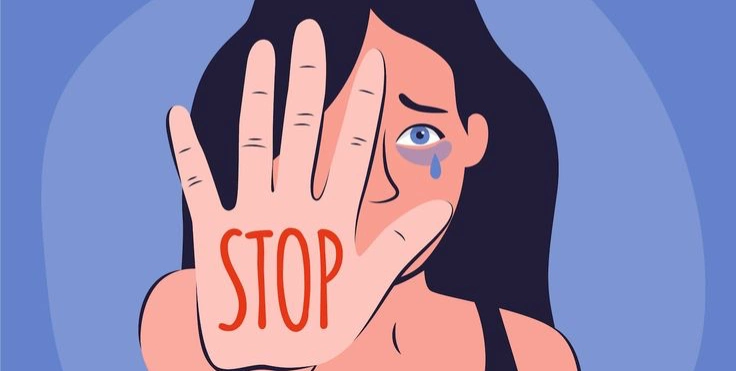
Domestic Violence Awareness Month is a time to say out loud: no one should live in fear. No one deserves pain. And every person is worthy of safety, respect, and love.
It is important to remember: help is near. Sometimes reaching out a hand or saying a few simple words of encouragement is enough for someone to realize they are not alone. Even small actions — sharing information, supporting a charity, volunteering — can change someone’s life.
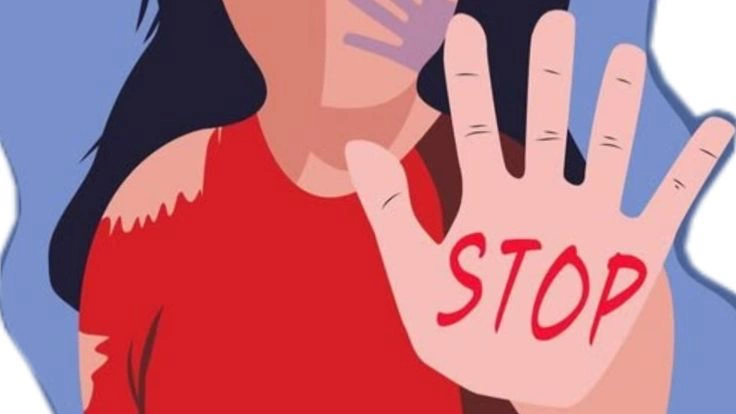
October reminds us: silence does not protect, it only strengthens violence. But every voice willing to speak up can break down the walls of fear and silence.
👉 Domestic Violence Awareness Month is not only about recognizing the problem, but also about action. About the steps we can take every day to make the world safer. Let us wear the purple ribbon, spread knowledge, and support those who are fighting. Together, we can build a society where love and care are stronger than fear and pain.
Every year on October 10th, the world marks World Mental Health Day, a time to recognize the importance of mental well-being and the need for open dialogue around it. Since its inception in 1992 by the World Federation for Mental Health, this day has grown into a global movement, encouraging people to share their experiences, challenge stigma, and advocate for better care.
The Power of Personal Stories
Mental health struggles can often feel isolating, but when people share their journeys, they remind others that they are not alone. A young student talking about their battle with anxiety, a parent describing the challenges of postpartum depression, or a professional opening up about burnout — each story chips away at the walls of silence. These voices create a ripple effect, giving courage to those who are still afraid to speak.
Understanding the Everyday Impact
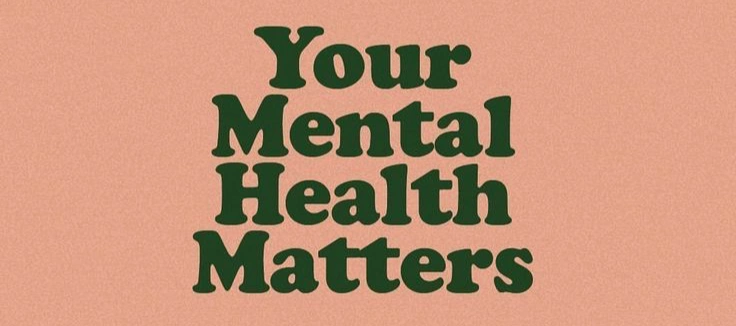
Mental health is not just about diagnosed conditions; it’s about how we handle stress, adapt to change, and relate to others. A bad week at work, grief after loss, or the stress of uncertainty — these experiences affect everyone, and acknowledging them is the first step toward healing.
Breaking Stigma through Awareness
Stigma thrives in silence. For too long, mental health issues have been whispered about or ignored altogether. World Mental Health Day transforms that silence into conversation — in classrooms, workplaces, and communities. Education campaigns, public talks, and social media initiatives on this day aim to replace judgment with understanding.
Practical Ways to Support Mental Health
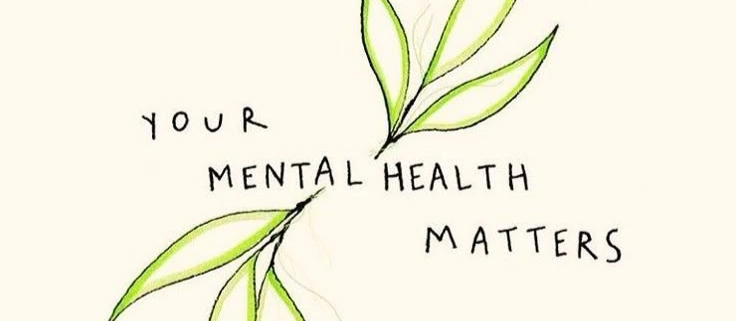
- For Yourself: Set boundaries, practice self-compassion, and prioritize rest.
- For Others: Be a patient listener, avoid dismissive comments, and check in regularly.
- In the Community: Support local mental health initiatives, volunteer, or advocate for accessible services.
The Role of Global Collaboration
Access to mental health care remains unequal across the world. While some have therapists, hotlines, and support networks, others lack even the most basic services. Governments, NGOs, and private sectors must work together to expand access and integrate mental health into public health policies.
The Heart of the Day
At its core, World Mental Health Day is about humanity — the shared understanding that everyone’s mind matters. It’s a reminder to look inward, care for ourselves, and extend empathy outward to others.
On October 10th, let’s move beyond awareness toward action. By speaking openly, supporting each other, and demanding better care, we can build a future where mental health is valued, protected, and nurtured for all.
Sometimes you go through life and everything seems… normal. Mornings, work, meetings, tasks, dinner, the news, sleep. Day after day. But inside — it feels like nothing is really happening. Everything runs in the background. No taste. No presence. No real “now.” Just the endless “must.”
It’s hard to explain this state. You’re not exactly depressed. Nothing terrible has happened. But everything feels muted. You react, but don’t experience. You speak, but don’t engage. You function, but you don’t feel.This is stress too — not the sharp kind, but the kind that quietly disconnects you from yourself.
We often think anti-stress means active recovery: exercise, breathwork, strict routines, meditation. And yes — that can help. But there’s a state where what you truly need is a pause. Not another action. But space. Silence.A moment without “should.”Without “do better.”Without “just push through.”
When you’re overloaded, your body protects you — by numbing your emotional depth. It’s not laziness. It’s not apathy. It’s survival.

And in moments like that, don’t ask yourself for motivation, inspiration, or energy. Because real anti-stress isn’t about pushing forward. It’s about giving yourself time and quiet, so you can feel again.
What helps you come back?
– Doing ordinary things slowly: washing hands, eating, getting dressed– Listening to real-world sounds — not music, not noise– Slowing your breath, even just for a minute– Looking out the window without rushing– Turning off stimulation: background videos, endless scrolling, constant noise– Writing — not a gratitude list, but what’s real, raw, now– Letting yourself want nothing at all
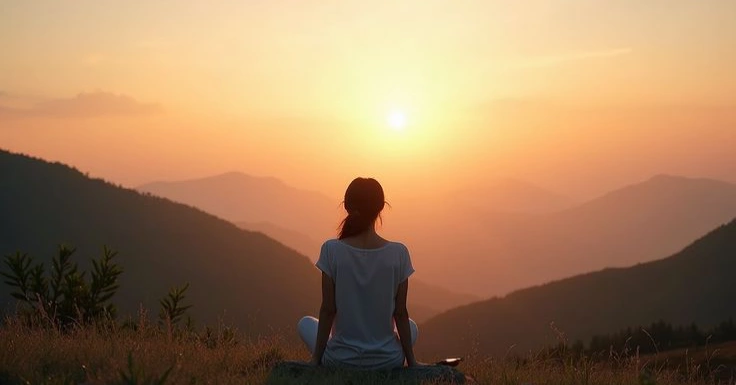
This isn’t a quick fix. It’s not magic. It’s honesty.A quiet recognition: “I’m not tired of life — I’m tired of how long it’s been since I felt like I was really here.”
Anti-stress isn’t just about regaining energy. It’s about regaining sensitivity. Because that’s what makes us feel alive. That’s the sign we’re finally back — in this moment, in ourselves, not drifting between tasks.
And sometimes, to feel again — you don’t need effort. You need stillness.No goal.No agenda.Just space to finally hear what’s happening inside.
Sometimes, stress doesn’t arrive like a sudden wave — it settles in like a heavy background. You go through the motions: working, talking, eating, doing what’s expected. But inside, it feels like you’ve been carrying something too heavy, for too long. You can’t quite exhale. The things that once brought joy feel distant. Everything outside is loud — and inside, there’s a quiet emptiness.
This isn’t just tiredness. It’s inner exhaustion. And in moments like this, the answer isn’t to force yourself to “get up and go.” It’s the opposite — to let go of the idea that you must be strong right now. Anti-stress isn’t always about breathing exercises or yoga. Sometimes, it starts with the simplest, most ordinary things.
We often think relief will come from something big: a vacation, a breakthrough, a reset. But true support often begins with the small. With tiny anchors that don’t ask for energy — but gently give it.
Here’s what those anchors might look like:
– Making a cup of tea and drinking it slowly, feeling the warmth– Changing into soft, comfortable clothes– Sitting by the window, just watching the world– Calling someone you can sit in silence with– Hugging a pillow, a blanket — or yourself– Clearing a bit of space around you, not to be productive, but to breathe– Turning everything off and lying in silence– Saying out loud, “This is hard right now” — and not having to explain why
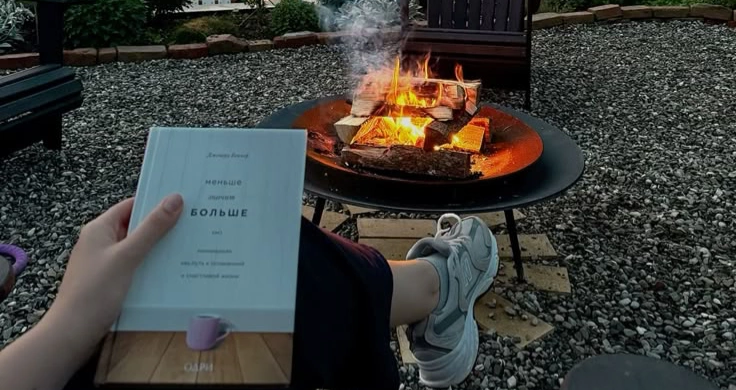
These aren’t magical solutions. They’re messages to yourself:“I’m here. I hear you. I’m not demanding anything. I’m with you.”
The nervous system doesn’t recover on command. But it responds to kindness. And the less we pressure ourselves, the faster strength returns. Sometimes we search for the way back to ourselves — through books, advice, meaning. But sometimes it begins with something simple: a warm cup of tea, and permission to just be.
Anti-stress is not a mood. It’s a mindset. Not toward the world — but toward yourself. It’s an inner voice that doesn’t say “pull it together,” but instead: “You’re not alone.” It’s a gaze that doesn’t judge. It’s a gesture that doesn’t fix — it soothes.
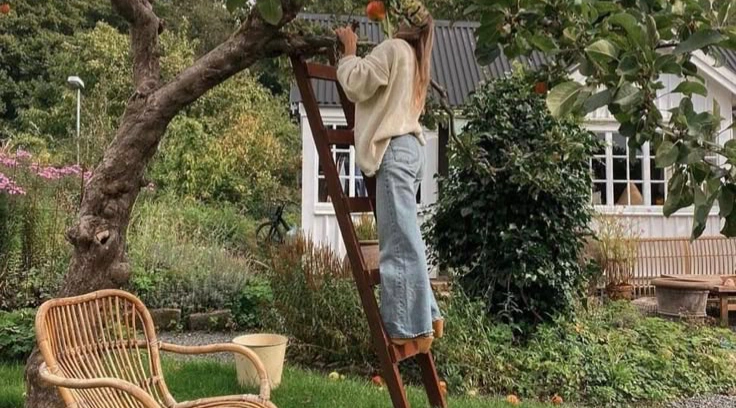
May each of us have something small to hold onto on heavy days — a light, a smell, a cup, a blanket.Because from those small places, we begin to return.Back to ourselves.
We live in noise. Both literal and emotional. Notifications, conversations, background music, the inner voice constantly reminding you of unfinished tasks. Even during rest, we turn something on — a series, a podcast, music — just to not “waste time.” We’ve almost forgotten how to be in silence. And yet, that’s exactly where real anti-stress begins.
Silence isn’t emptiness. It’s space. A space where you can hear yourself. Not what needs to be done — but how you’re actually feeling. In the absence of outer noise, the inner voice becomes audible. Not the inner critic. Not the planner. But that quieter voice that speaks honestly: “I’m tired,” “I’m scared,” “I need comfort,” “I don’t want to pretend anymore.”
We often treat silence as something uncomfortable. Because when we stop — everything we’ve been trying to suppress starts to surface. Emotions, fears, unprocessed thoughts. But this is also where clarity begins. Silence becomes the space where you can truly rest — without stimulation, without analysis, without comparison.
Anti-stress isn’t always about “what to add,” but often about what to remove. Sometimes, the best way to restore yourself is not doing more, but letting go of:– noise,– endless information consumption,– conversations that drain you,– plans that no longer feel like yours.

When we allow ourselves silence, it might feel strange at first. The brain craves stimulation. The hand reaches for the phone. You may feel a sense of “emptiness.” But if you stay with it just a little longer — something else arrives: relief. Soft, real, deep.
Start small:– 5 minutes of silence in the morning before checking your phone– lunch without a video in the background– a walk without headphones– one screen-free evening a week– just breathing in silence — to feel your own presence
This isn’t about restriction. It’s about choice. Choosing to leave the noise behind where it’s not needed. And reclaiming your right to pause. Because true anti-stress doesn’t come from “handling it all,” but from returning to yourself. From finding quiet within. From simply being — without roles, without tasks, without background sound.

In a world that constantly speaks, you have the right to be quiet.And in that silence — you just might heal.
People talk about stress a lot — but usually when it’s already overwhelming. When someone feels burned out, can’t sleep, loses interest in things, gets irritated with loved ones, and struggles to concentrate. We often treat stress as something sharp and external. But the truth is, stress builds up quietly. And true anti-stress practice doesn’t start when things are bad — it starts every day, in small ways.
Emotions are like dust. You don’t always see them, but if you don’t clean regularly, it becomes hard to breathe. Emotional hygiene isn’t a luxury — or a weakness. It’s a way to protect your clarity, your warmth, and your energy. It’s inner maintenance that helps you live, not just survive.
Anti-stress begins with the habit of noticing what’s happening inside. Honestly, without judgment. Being able to say: “Yes, I feel anxious right now.” Or: “I’m tired — and that’s okay.” Or even: “I feel nothing, and maybe that’s a sign I don’t need to push — I need to pause.”
We often demand from ourselves to be focused, strong, “on top of things.” But strength doesn’t mean not feeling. True strength is in not hiding from your feelings. Giving them space. Letting yourself feel — without excuses, without rush, without shame for being human.

Anti-stress isn’t always about techniques. It’s about attitude. It’s choosing not to push yourself to the edge. It’s being willing to pause — not just physically, but mentally. It’s allowing yourself to not reply instantly, to not take on more, to not be productive 24/7. It’s about respecting your energy and your rhythm.
It helps to ask yourself simple questions:
– What am I really feeling right now?– Where do I feel it in my body?– What am I missing in this moment?– How can I give myself even a small part of that?
The answers may not be grand. Sometimes it’s just: “I want silence.” Or “I need a hug.” Or “I need to stop and look out the window for a while.” That is anti-stress — when you stop running from yourself and start getting closer.

No, we can’t erase stress from the world. But we can stop multiplying it inside ourselves. We can move through life with a little more softness, awareness, and care — toward ourselves, our bodies, our thoughts, our tiredness. We can stop trying to be perfect — and still be worthy of rest.
Anti-stress isn’t something external. It’s an inner position:“I choose to be with myself, not against myself.”“I allow myself to rest.”“I don’t have to be strong all the time to be valuable.”
And from that place, energy returns. Clarity returns. Even joy can return. Because when you’re finally on your own side — there’s nothing more to prove.You exist. And that — is enough.
We live in a world of constant comparison. Social media has become a showroom of other people’s milestones: someone has launched a business, traveled to ten countries, bought a house, had a second child, started a podcast — all while looking effortlessly radiant and inspired.
And you, sitting in your current reality, suddenly feel like you’re behind. Like you missed something. Like life is happening for everyone else — and you’re stuck in the waiting room.
But the truth is: there’s no single route. No universal timeline.Everyone is on their own path, their own pace, their own unfolding.Some find joy at 22. Others at 47. No one’s too early. No one’s too late.We all arrive when we’re ready.

You don’t have to rush. You don’t have to match anyone else’s speed.Your worth isn’t measured by how quickly you check off boxes — but by how fully you live in alignment with who you are.
Comparison steals joy.It pulls you out of your own story and makes you forget you were never meant to live someone else’s.

You’re not behind.You’re on your way — in your own time, on your own terms.And that’s exactly where you need to be.
There are days when everything feels blurred.Thoughts don’t form clean lines.Emotions come and go like waves — rising, crashing, receding.You can’t explain what you feel.You don’t know what you want.You’re unsure where you’re going next.
And that — is still life.
Not all clarity comes right away. Not every day has to be productive. Not every season has to make sense.
Sometimes, a day exists just so you can slow down.So you can sit with yourself.Breathe without urgency.Feel without trying to fix.Just be — without editing or effort.
We are so used to thinking that life must always be understood.That we need a plan, a purpose, a clear narrative.But some of the most important chapters are the ones we only understand in hindsight.Not in the moment — but years later, when we see how they shaped us.
We’re taught to analyze everything: emotions, choices, meanings.We chase control, answers, outcomes.We try to organize life into something linear, measurable, and safe.But life doesn’t always work that way.It often opens when you stop forcing it into a shape.
Some things are meant to be felt, not solved.Some days are meant to be lived, not explained.

So much of what’s beautiful in life comes not from structure, but from surrender.Not from knowing, but from trusting.Not from control, but from connection — to yourself, to the moment, to something greater.
You don’t need to know how it all turns out.You don’t have to be certain to keep moving forward.You don’t have to be whole to be worthy.You don’t owe anyone an explanation for your quietness, your slowness, your softness.
You have permission to just be.Exactly as you are — messy, tired, thoughtful, unsure.
And sometimes, the most meaningful moments are the quietest:
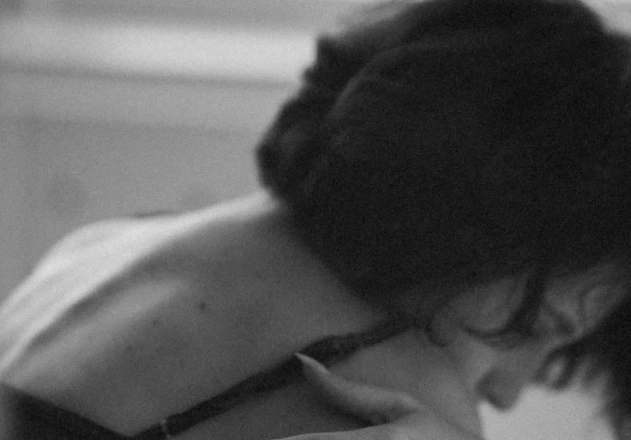
A deep breath.The way sunlight moves across your wall.The comfort of a soft blanket.The smell of something warm from the kitchen.A pause.A presence.A whisper: “I’m here.”
That’s life too.Real.Unpolished.Unfinished.But still yours.
You don’t have to understand.You’re already alive.And that, in itself, is everything.
Most nights, I’m alone with the glow. Phone on chest, thumb working on autopilot. It’s not boredom — it’s something else, something deeper. A strange comfort in surrendering to the scroll, letting the feed assemble a version of the world just for me. It feels passive, but it isn’t. It's choosing silence over sleep, distraction over rest. The algorithm knows — and I hate that it knows — that I’m most vulnerable around 2:14 a.m.
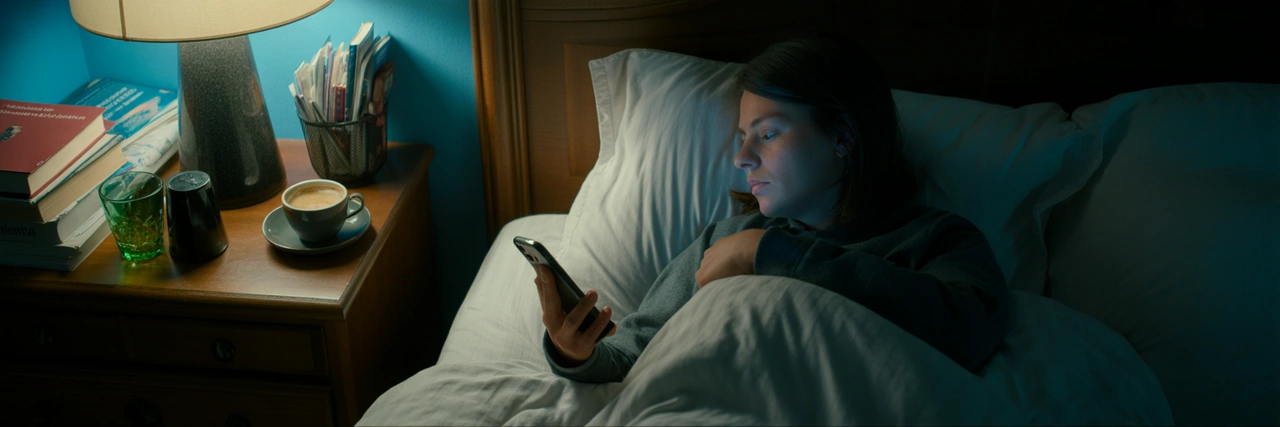
There’s something addictive in seeing your own interests reflected back at you, sharpened and exaggerated. I see jazz clips, abandoned architecture, protest art — all the things that feel like me, but not quite. Like a distorted echo. The more I scroll, the less I know what I actually like and what I’ve been taught to chase. It’s not curated taste — it’s trained impulse.
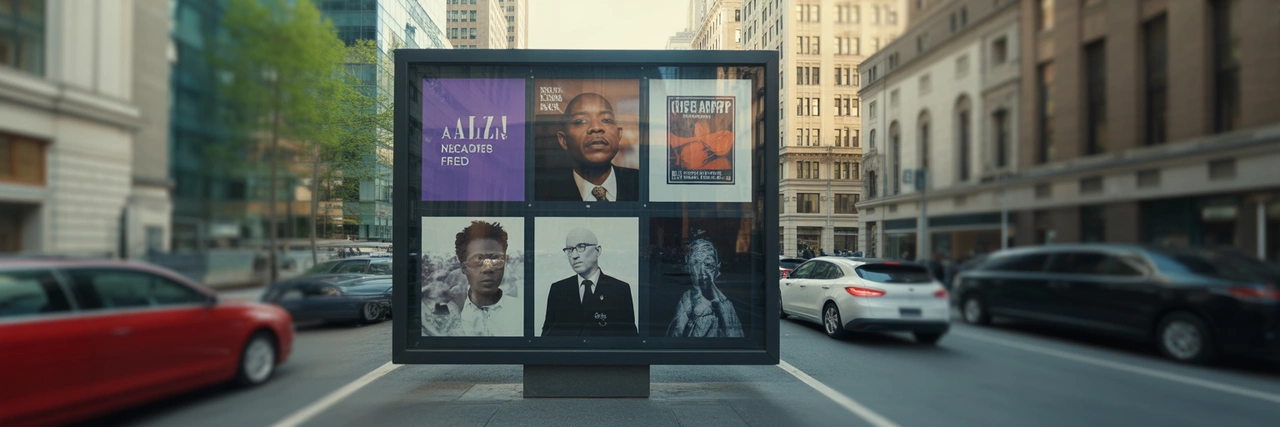
Sometimes I pause and just sit there — phone in hand, no movement, just the hum of electricity and the sound of my own breathing. The algorithm hates that. It needs input. It needs me to click, react, re-engage. In those pauses I remember the outside world — streetlights, dust on the record player, silence that isn’t emptiness. And then I scroll again, like I always do.
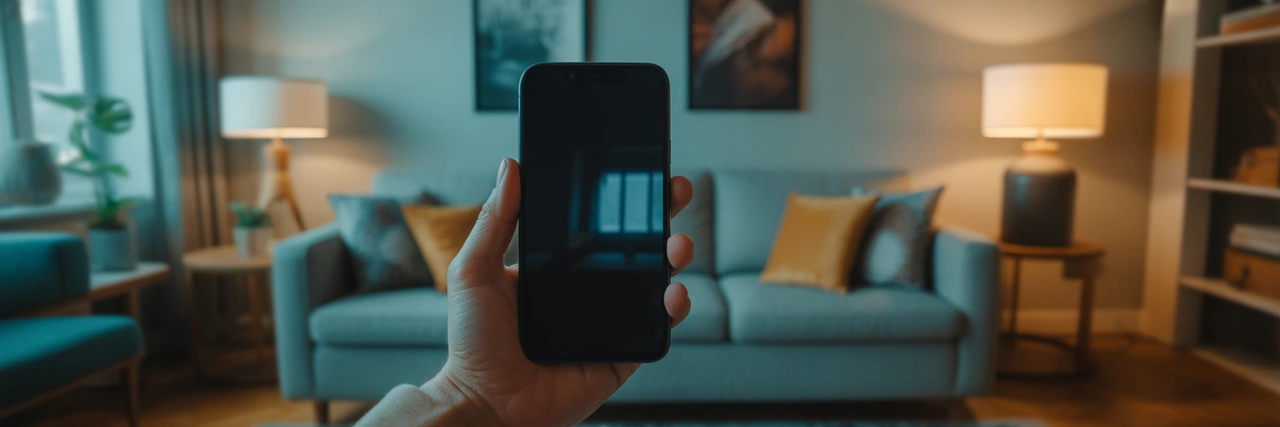
I’m not writing this to offer a solution. I’m still here, every night, eyes burning. But lately, I’ve been trying to reclaim a few minutes before the scroll — to think a thought that wasn’t suggested to me, to feel something untagged. It’s not rebellion, really. Just a quiet reminder that I still exist beyond the feed. Maybe you do too.
